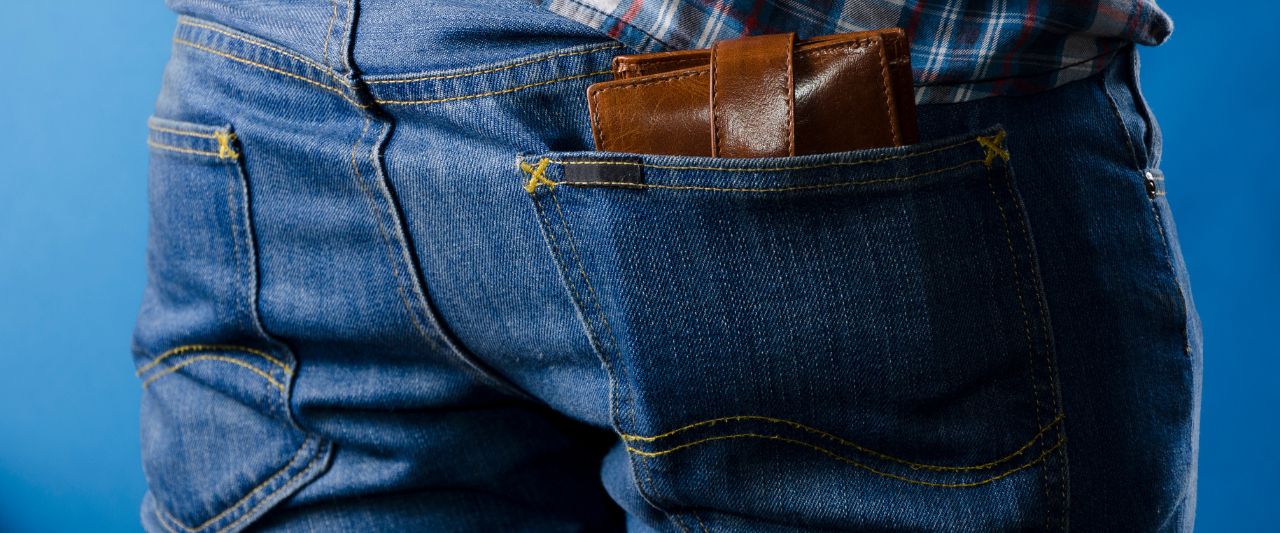Understanding Fat Wallet Syndrome
Fat wallet syndrome arises from carrying a thick wallet in the back pocket, which, when sitting, can exert pressure on the piriformis muscle and the nearby sciatic nerve. This can lead to pain and discomfort, a condition medically recognized as piriformis syndrome. While it may sound trivial, the implications of continually pressing on these sensitive areas can be significant.
The Anatomy Behind the Pain
The sciatic nerve, the largest nerve in the body, plays a crucial role in connecting the spinal cord with the leg and foot muscles. Running from the lower spine through the buttocks and down each leg, any pressure on this nerve can cause considerable pain. The piriformis muscle, located deep in the buttock, is susceptible to being compressed by a bulky wallet, leading to what is commonly referred to as fat wallet syndrome.
Symptoms of Fat Wallet Syndrome
Symptoms typically include pain and tenderness in the buttock area, which can radiate down the leg, mimicking sciatica. Sufferers might also experience numbness or tingling along the nerve's path and increased discomfort after prolonged periods of sitting. In chronic cases, this can lead to persistent pain and even impact mobility.
Incidence and Risk Factors
This condition is more prevalent than often realized, particularly among men who routinely carry their wallets in their back pockets. Risk factors include the size and thickness of the wallet, the duration and frequency of sitting, and overall posture. Over time, these factors can contribute to a noticeable impact on one's physical well-being.
Medical Perspective
Healthcare professionals, including orthopedists and chiropractors, recognize the potential harm of sitting on an overstuffed wallet. It can lead to a tilt in the hips, causing spinal misalignment and imbalance in posture. This, in turn, can exacerbate lower back pain and lead to conditions like sciatica and other chronic back issues.
Prevention and Management
Preventing fat wallet syndrome is relatively straightforward. The key is to either significantly reduce the size of the wallet or carry it in a front pocket or bag. Regularly decluttering the wallet to keep it slim is also an effective strategy. In addition, incorporating exercises that strengthen the back, buttocks, and core can help mitigate the risk.
Alternatives to Traditional Wallets
The market has responded to this health concern with an array of alternatives. Slim wallets, money clips, and front-pocket wallets are becoming increasingly popular. These options promote carrying fewer items, thus reducing bulk and the risk of associated health problems.
Case Studies and Anecdotal Evidence
There is a growing body of anecdotal evidence supporting the existence of fat wallet syndrome. Numerous individuals have reported a reduction in back and leg pain after switching to slimmer wallets or changing their wallet-carrying habits. Some case studies also point towards a clear correlation between a bulky wallet and the onset of symptoms akin to sciatica.
Expert Opinions
Experts in orthopedics and chiropractic care often warn against the long-term effects of sitting on a bulky wallet. They caution that persistent pressure on the piriformis muscle and sciatic nerve can lead to chronic pain conditions, necessitating professional medical intervention in severe cases.
The fat wallet syndrome, while often overlooked, is a genuine medical concern with significant implications for one's health. The continuous pressure exerted on the piriformis muscle and sciatic nerve by a bulky wallet can lead to discomfort, pain, and long-term health issues. By adopting simple changes, such as switching to a slim wallet or altering how and where we carry our wallets, we can prevent these problems. Awareness and small lifestyle adjustments are key to avoiding the repercussions of this surprisingly common syndrome.



